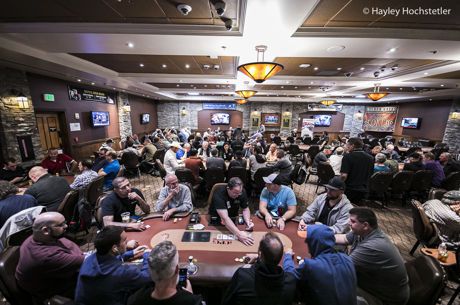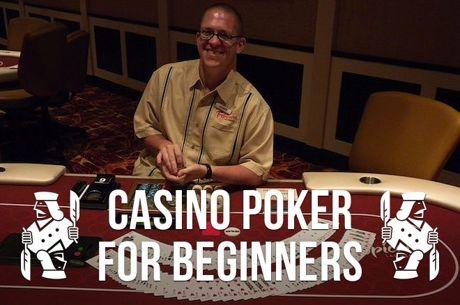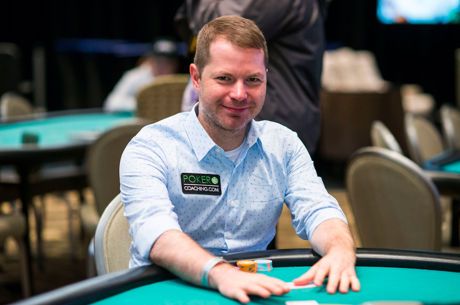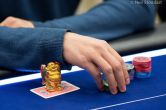Retrieving Dead Cards From the Muck
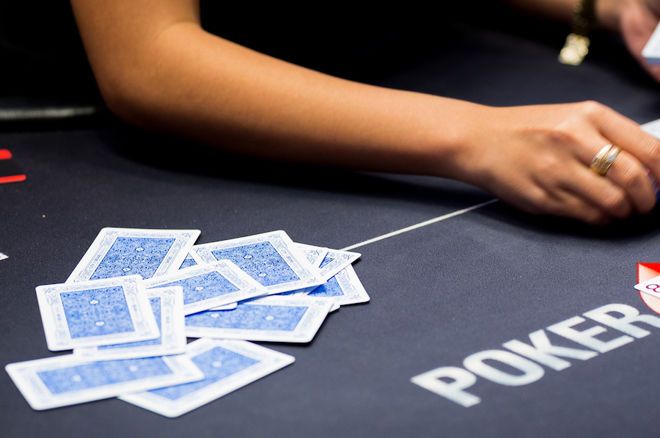
When your cards touch the muck, they are dead. Forever. Period. Everybody knows that. Those are the rules. Let's move on.
This is one of the most familiar and universal of poker room rules.
Less well-known is an important exception. In Robert's Rules of Poker, Bob "The Coach" Ciaffone describes it:
Cards thrown into the muck may be ruled dead. However, a hand that is clearly identifiable may be retrieved and ruled live at management's discretion if doing so is in the best interest of the game. An extra effort should be made to rule a hand retrievable if it was folded as a result of incorrect information given to the player.
Let's examine how this exception can happen.
A Dispute Arises
Here's an example from a recent live no-limit hold'em cash game. There are two remaining players. After the river card is dealt, the board reads A?9?4?J?2?. Imagine you are the floor supervisor listening to each of these stories.
Dealer:
"After I dealt the river card, I didn't see either player check or bet. When I said to Player A 'it's your turn,' she tabled her cards." The dealer points to two cards laying face up in front of Player A, a jack and a nine. "Then Player B pushed his cards forward without saying anything. It looked like he was folding and I placed them on top of the muck pile like I always do. But when I gave the pot to Player A, Player B objected, saying he had never acted, she had open-folded, and the pot should be his. Player B also said his exact cards were the king of diamonds and ten of spades, which in fact were the two cards on top of the muck pile."
Player A:
"Well, I was first to act and checked. A couple seconds later, the dealer motioned towards me and said, 'it's your turn.' Knowing that I had already checked, I assumed the dealer was calling for the showdown, even though I never saw Player B check back. So I tabled my hand. With four diamonds out there, I'm never betting and can't call another bet, but my jack-nine gives me two pair, which might be good if Player B doesn't have a diamond in his hand."
Poker Face Meaning �C What Is a Poker Face and How to Get a Good One?
Player B:
"I never acted! I didn't see Player A check and the dealer never indicated the action was on me, so I was just waiting. She tossed her cards face up and towards the dealer before I acted, which is an open fold. She basically surrendered the pot by not waiting for me to act, so the pot belongs to me and I don't need to show my cards. That's why I slid my cards face down towards the dealer and let go of them. It doesn't matter that her cards are face up, because flipping them towards the dealer before I've acted is an open fold. And by the way, I had the nuts with the king of diamonds. Why would I ever fold the nuts?"
The dealer now indicates the two cards he says were retrieved from the top of the muck pile �� K? and 10?.
Management's Discretion
The supervisor's job is to gather and assess the facts, and then make a judgment call. Quickly! Is retrieving the dead cards from the muck, in this instance, in the best interests of the game? When Player A showed her hand prematurely, before Player B had either bet or checked back, did that lead to the unintended consequence of Player B appearing to fold because he thought the hand was over and the pot would be his?
In this case, the supervisor ruled that letting the cards speak is in the best interests of the game. No one doubted that Player B had the nuts after he named the exact rank and suit of his hand, which matched the top two cards on the muck pile. Player B's hand was retrieved from the muck and declared live, and he was awarded the pot.
The Ruling is Correct by Definition
Using discretion under intense time pressure, in public, is a lot easier said than done. When a floor supervisor has to decide whether retrieving dead cards from the muck "in the best interest of the game," he or she needs enough space to gather and evaluate the facts. Somebody is going to be unhappy.
The supervisor has to be both the judge and the jury. But the ruling is always correct, in the sense that is reflects the supervisor's best judgment, in the moment, of the game's best interests. If the supervisor in the example above had given the opposite ruling, it would still be correct because it would still reflect the supervisor's use of judgment and discretion.
In any case, it's good to know the rule about what happens to cards that hit the muck, and to be aware of this exception and how it is handled.
David Bass mostly plays in live no-limit hold'em cash games and has been writing about poker since 2012. You can follow him on Twitter @KKingDavidPoker or enjoy his blog, They Always Have It, at https://kkingdavid.com/.

